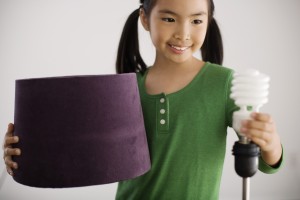On average, Americans spend almost a third of each day sleeping. Our bedrooms should be safe and comfortable places to rest.

The folks at Indiana Electric Cooperatives encourage you to make electrical safety a priority in your home’s bedrooms by performing routine inspections of lighting fixtures, computers, space heaters, TVs and ceiling fans.
“Pay close attention to all electronic devices in your bedrooms,” said Rick Coons, CEO at Indiana Electric Cooperatives. “And, teach your children to be mindful of their use of electricity in their bedrooms.”
Teens often have multiple electronics in their bedrooms, from gaming systems and computers to mobile phone chargers and hair straighteners. Help your children get into the habit of turning off all electronics and lights when leaving their rooms.
The wiring in your home may be outdated if your home was built more than 20 years ago and may not be able to safely handle the demands of modern electronic devices. Consider having a licensed, qualified electrician inspect your home’s wiring.
You can also look into purchasing devices with automatic shut-off features as an extra safety precaution.
If you have young children or grandchildren, consider installing tamper resistant receptacles or a similar product, such as the Brio Safe Outlet. This innovative new wall unit only delivers electrical current when it senses a plug. Microelectronics determine if there is a valid need for power.
To prevent lighting fixtures from overheating, use correct bulb wattage. Periodically check the cords of lamps and other devices; replace electronics with cracked or frayed cords. Also be sure that cords are not pinched by heavy furniture, such as beds or dressers, as this can damage the cord’s insulation. Do not nail or staple electrical cords to walls or baseboards.
On those cold nights when you pull out the portable space heater to kill the chill, remember to place the heater at least three feet from any wall, furniture or fabric. Only use heaters that are certified by an independent testing agency and that are appropriate for the size and function of your room. Plug the heater directly into the wall outlet — not the same outlet that’s being used for other appliances or electronic items. Since it’s not a good idea to sleep with the heater on, be sure to pick a model with a timer so you can set it to turn off before you go to sleep. When you are not using the heater, unplug it — don’t just turn it off.
Extension cords should only be used on a temporary basis. If you find yourself using extension cords or power strips, consider having an electrician install additional outlets. According to the Electrical Safety Foundation International, every year around 3,300 home fires originate in extension cords.
“We encourage our members to not only check lighting fixtures and cords for safety,” said Coons, “but also often-overlooked devices in their bedrooms such as ceiling fans.”
Clean ceiling fans periodically, especially around vents, to prevent build up of dust, which could spark a fire. Also, turn off the fan and check that the screws are tight. A wobbling fan can wear out the motor and become a fire hazard.
Find additional electrical safety tips for bedrooms and other rooms or your house at http://virtualhome.esfi.org/.
Put these tips into practice to wake up to safety each and every day.
Sources: Bureau of Labor Statistics, Electrical Safety Foundation International, briohouse.com, delmarfans.com, Lasko Products.
Items to routinely check for safety in your bedroom:
- Cords of all electronic devices, including TVs, computer and mobile device chargers: Replace if frayed or cracked. Be sure cords are not pinched by heavy bedroom furniture such as beds or dressers.
- Ceiling fans: Clean around the vents and tighten screws.
- Lighting fixture: Make sure the correct bulb wattage is used in each fixture.
Call an electrician if:
- Your home is more than 20 years old. It may not be able to handle the demands of today’s multitude of electrical devices.
- You are using power strips or extension cords permanently. Extension cords should only be used on a temporary basis.





